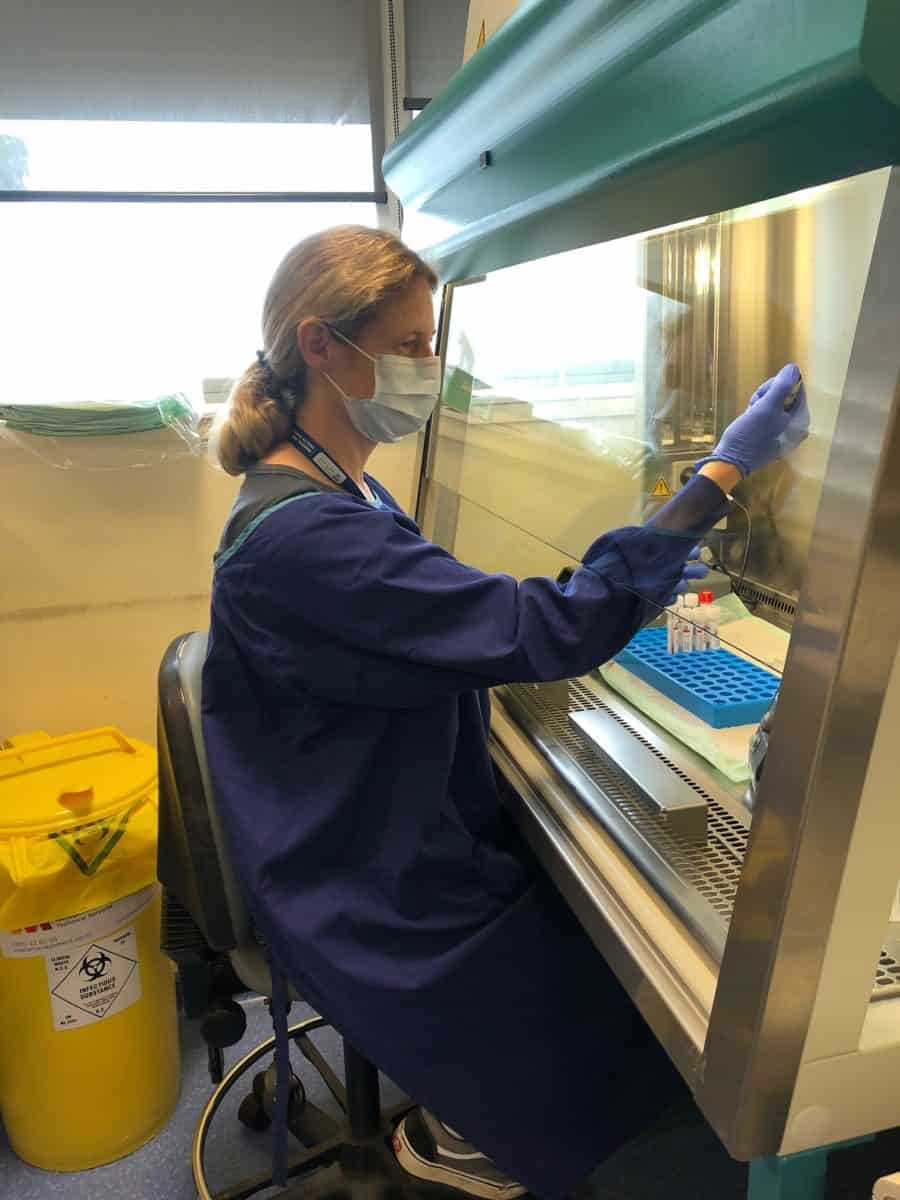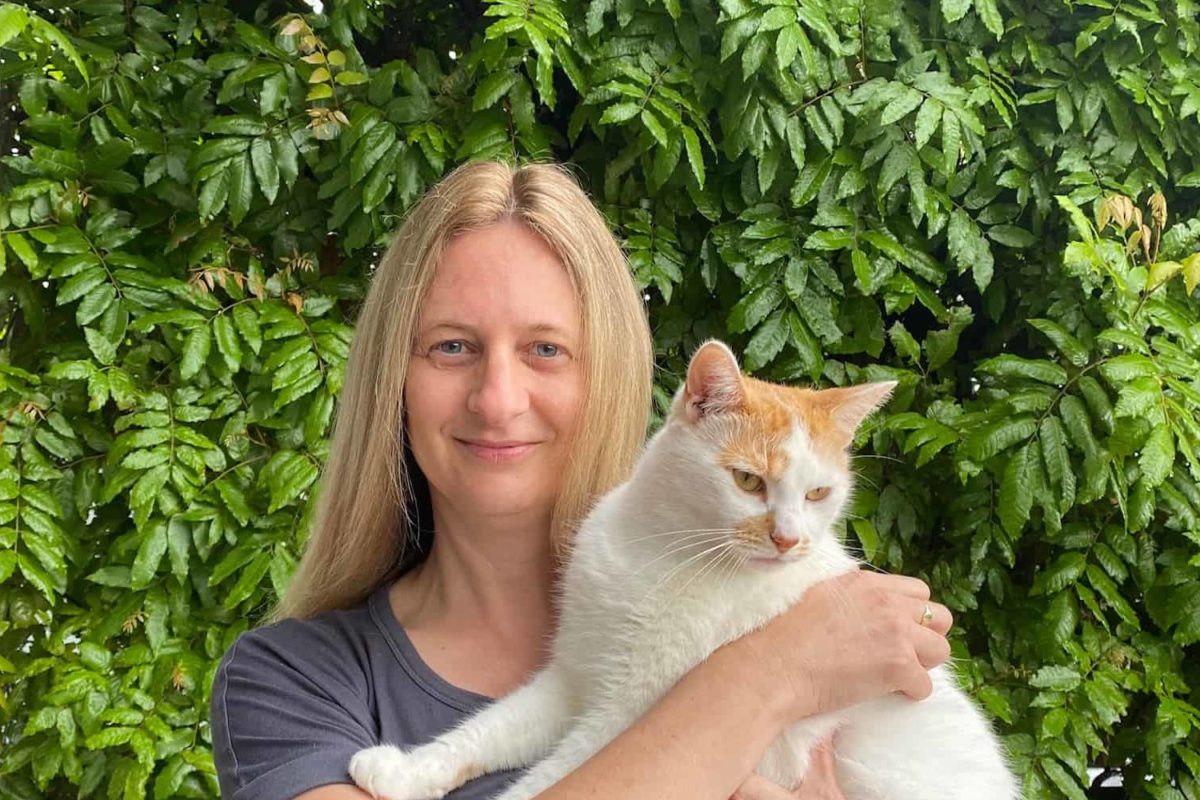Research voices: Dr Sandra Fitzgerald
13 December 2021
Sandra Fitzgerald finished her PhD in 2021, working in the laboratory of Professor Cris Print and Dr Annette Lasham at the University of Auckland, in collaboration with Professor Parry Guilford’s group at the University of Otago. Her project, partly funded by Healthier Lives, has been investigating blood plasma biomarkers, and in particular circulating tumour-derived DNA or ctDNA, to determine if these markers can be used to follow the progress of cancer treatment.
Life experience an advantage
Sandra had been working in research for a number of years before she embarked on her doctoral studies. I asked her why she decided to do a PhD.
“With my kids being older, I wanted to expand the research work that I was involved in as a research technician, and undertaking a PhD allowed me to do this. Being a more mature student has really helped because you have the benefit of life experience and better organisational skills, that have made doing a PhD just so much fun. It’s been an amazing experience and I have really enjoyed it.”
Sandra says she is quite a technically focused person and that a PhD has enabled her to work on a project that uses these skills to answer an important question:
“Our whole research group is very focused on translational research, so that’s what really attracted me to doing this work. How do we make a difference to a patient’s clinical journey? And what’s the technology that follows up behind that journey?”
Motivated by equity
Sandra’s PhD has focused on finding ctDNA biomarkers in the blood that can tell clinicians very early on if cancer treatment has been successful, or if patients need further treatment. Sandra explained why this is important:

“This is so patients don’t have to keep going to a main centre hospital. They could just go to their local diagnostic lab and have a blood test. That’s really the crux of it. How do we monitor patients’ disease in an economical and equitable way, so no matter where you live in the country, no matter how wealthy you are, no matter how much access you have to central city hospitals – how do we make care more equitable?”
Sandra has worked on a number of cancers, but focused particularly on melanoma for her PhD studies. She developed a sequencing panel that could detect common tumour-specific DNA changes, or so-called ‘driver mutations’, and she was able to demonstrate the efficacy and sensitivity of these tests in a group of patient blood samples. The most informative mutations could then be detected using a routine diagnostic method called digital droplet PCR, to follow these biomarkers in blood samples from cancer patients. Making this process accessible to all has been a major motivation for her studies:
“I’ve been very lucky, being at the grass roots level of this, to be able to create a product that is affordable. Anyone can go and get a Foundation Medicine ctDNA test at $5000, if you’ve got the money or the insurance to pay for it. We are trying to design something that is going to cost a couple of hundred dollars, not thousands of dollars, so that real people can have it done and the health system can afford it.”
COVID calling
Sandra’s sought-after diagnostic skills led her to take several months off from her PhD studies to help with COVID-19 testing, work which she still continues in her weekends and “spare time”. Despite taking time out from her studies, this experience has also had some benefits:
“Last year when COVID hit I helped out at the University doing the COVID-19 testing. I stayed there for five months and was able to get my medical laboratory scientist qualification. That gives me the registration to work in any diagnostic lab in the country”.
Sandra noted that staff in the diagnostic labs are really stretched, with little time to set up new tests. But with all the new connections she has made, she hopes that she can assist with establishing new diagnostic tests in the future, helping to translate research findings into everyday clinical practice.
Encouraging the next generation of scientists
Sandra also enjoys teaching and over the last ten years she has been involved with a Rotary-funded summer science course for year 12 students, facilitated by her supervisor Professor Print. Her mission is to inspire a whole new generation of students to get into research:
“I find science the most unique career in the world. There is no other career where you are paid to go to work and think about things, and read things, and go to conferences and discuss ideas. I love this environment where we are constantly learning every day.”
Biomarkers for cancer detection project page
Other articles in this series:


